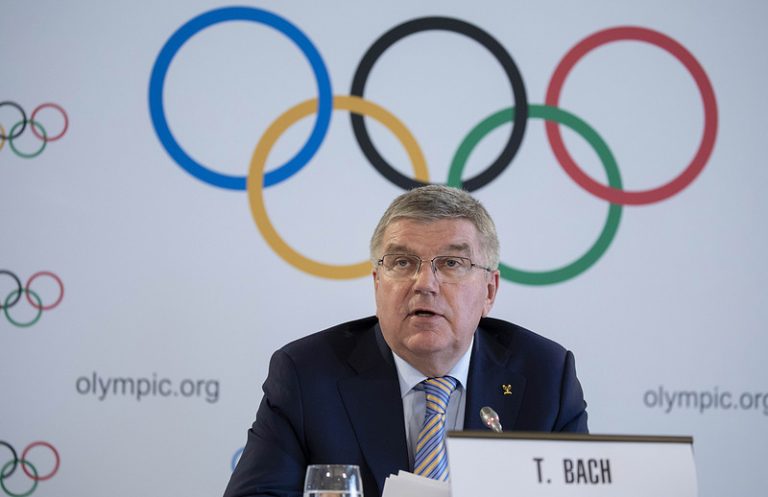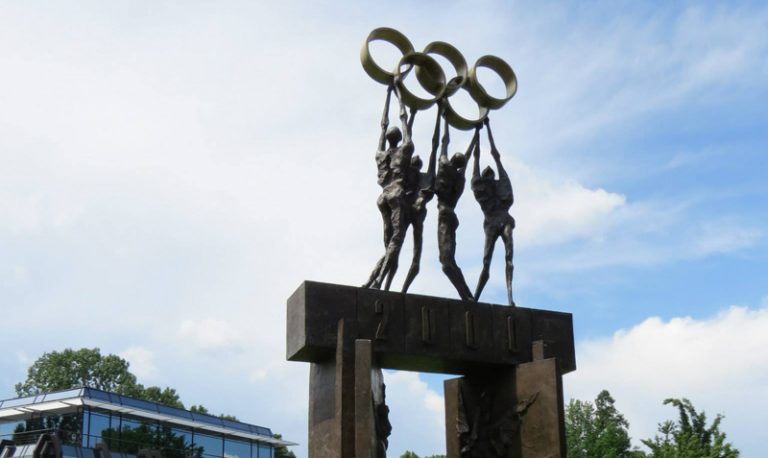
BidWeek, Reporting From Lausanne, Switzerland – A final press release sits in the front of the official Stockholm Åre 2026 Olympic bid website.
“No Winter Games in Sweden,” it announces, in bold.
Sweden’s Olympic and Paralympic Games bid was defeated by Italy’s Milan-Cortina Monday, outvoted decisively 47-34.
But there’s more to the tone of the title. It’s not just about 2026, it seems. It’s describing a void, a feeling that something is missing.
Indeed, Sweden has been relentless in its pursuit of a Winter Games that just doesn’t seem to want to emerge.
The true, Nordic winter sports nation has won more Olympic medals than any other nation never to have hosted the Games.
No Winter Games in Sweden, ever?
Stockholm launched a bid for the 2022 Winter Olympics before unfavourable politics led to its withdrawal. But Sweden bid full-force and unsuccessfully for Winter Games including Ostersund in 2002, 1998 and 1994; Falun in 1992 and 1988; and Gothenburg in 1984. Including Monday, Sweden has placed second four times.
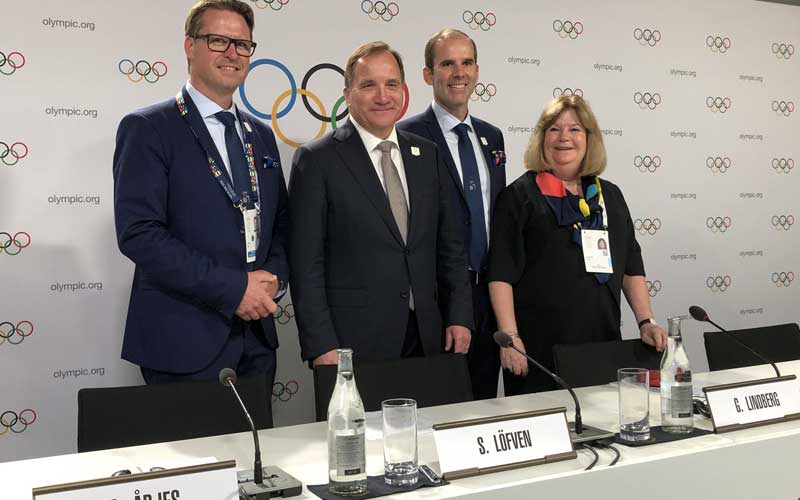
Seven defeats.
A Sweden Winter Games could be the most elusive prize ever associated with the Olympics.
Just to add to the frustration, the Capital bid for the Summer Games, and lost for 1952 and 2002. Stockholm hosted the so-called “sunshine Games” in summer 1912 and staged equestrian events alongside the Melbourne 1956 Olympics.
In Lausanne for the bid election, Sweden’s Crown Princess Victoria and Prince Daniel were candid with me when they took the time to discuss their passion to host the Games, before the vote.
When I asked about the lackluster public support at home, Prince Daniel said that Swedes are calm people but added sheepishly “We’re afraid of being disappointed, again.”
Princess Victoria added, laughing uncomfortably “I think so.”
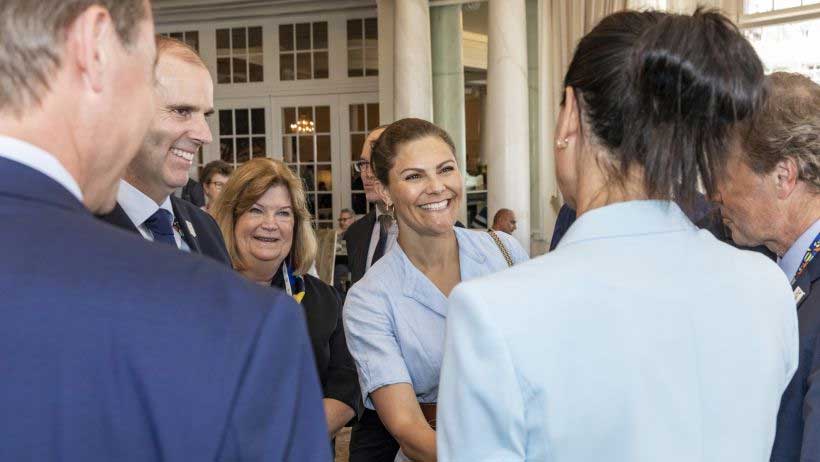
An IOC poll earlier this year suggested only 55 percent in Sweden support the Games. A bid-commissioned poll last week suggested that number rose to 63 percent when respondents were told about the sustainable features of the bid.
In Italy, 83 percent supported the Games in Milan-Cortina, and Italians aren’t shy about showing their emotions.
Italy hosted the Winter Games recently in 2006 in Turin, and in Cortina d’Ampezzo in 1956. There is no void there.
With Olympic bids, like with sports, there can be only one winner – and the rest are defeated. On Monday, Italy won the day. The Milan-Cortina plan was something that the IOC liked, and trusted, and they embraced that project.
The Italians were worthy winners.
So why, then, does the Swedish team feel cheated?
Moments before the IOC members rendered their verdict, Swedish IOC Executive Board Member Gunilla Lindberg, speaking on behalf of her bid in the final words of a presentation challenged her colleagues saying “is the IOC ready for the New Norm or is it just talk?”
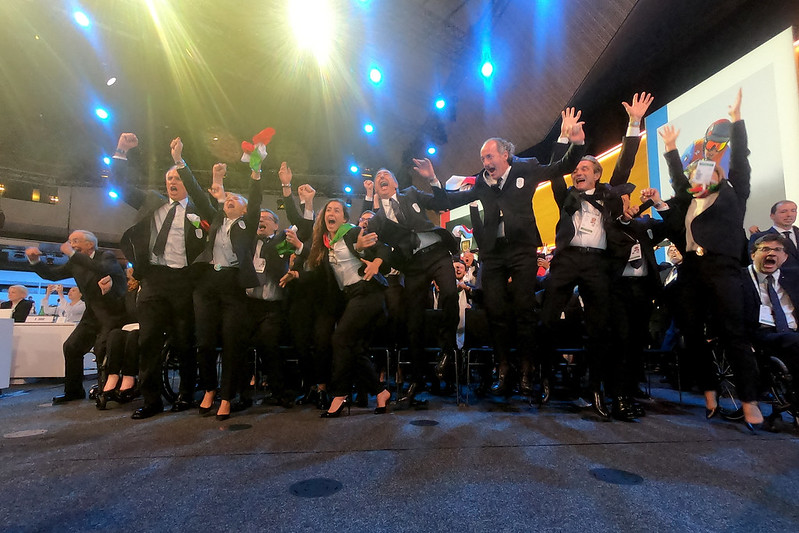
Asking if the members were really serious about the IOC reforms – dubbed Olympic Agenda 2020 and the New Norm, or not – she was declaring that a vote against Sweden was a vote of non-confidence of the IOC’s new sustainable site selection process.
You get the sense that she knew Stockholm Åre was on the wrong end of this race, and her words were a final, risky salvo to sway needed votes. It didn’t work.
IOC President Thomas Bach who is the champion of the new reforms was the first to offer consolation to the teary-eyed Lindberg after the winner announcement was made, and it was the other bid. The exchange seemed genuine yet awkward.
Bid Chief Richard Brisius was gracious in defeat, speaking to me moments after the bad news he said “We were seven coming into the bid and we were in the final, and hopefully we made people proud of us.”
“Sweden has come together around this bid. From the politics, business and many others and I think that it has brought us together.
“And it has brought us together around our values, the Swedish values which we believe are right, that we wanted to instill in the Games.”
His tone changed, his eyes looking down when he added “we have looked deep within ourselves and see what kind of Games do we want, how do we want to work and what’s okay for us. And they weren’t according to their standards…”
Their standards. I knew what he meant.
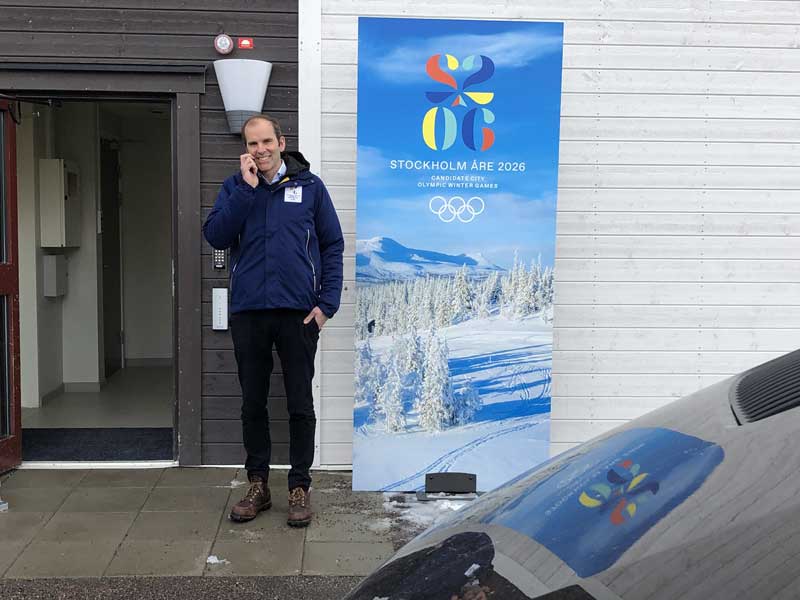
Throughout the campaign, both bids have been given leniency as the new concepts and bid process required constant adjustments. Extended deadlines, remote clusters, hyphenated bid names – these were never allowed in the past.
Amid a race where five of seven applicants either self-eliminated or were dismissed, you could understand why the evaluation committee would expect challenges and imperfections from those bids that remained.
Evaluation Commission Chief Octavian Morariu became almost robotic when discussing the bids as he repeated praise and dismissed challenges in the name of flexibility and the New Norm. Among colleagues during the several meetings throughout the campaign, it was practically a drinking game.
At the final press briefing following the inspection of Sweden’s facilities in March, Morariu said “The candidature benefits greatly from using the best existing facilities in Stockholm, Åre, Falun, and Sigulda, and thus fully reflects the Olympic Agenda 2020.”

“We are happy to see ever increasing public support as evidenced by the recent IOC poll which is shared to the candidature committee yesterday.”
Morariu also echoed the bid’s claim that polling is different in Sweden, that a strong consensus is difficult but you have to look at the “no’s” more than the “yes’.” In Sweden, according to the IOC’s numbers, only 17 percent opposed the bid, the rest were undecided, likely due to lack of information early on.
I can’t be sure what private conversations were going between the parties, but besides the government guarantees, which were eventually secured, it sounded like Brisius and his team measured up to the IOC’s ‘standards’.
I asked Morariu and IOC Executive Director Christophe Dubi once, twice, maybe three times if the Stockholm Mayor’s unwillingness to risk taxpayer money on the Games was a problem and was always assured that in the name of flexibility, there were other creative options. After all, I was told, PyeongChang’s Games were supported by the Province and LA 2028 will be completely privately funded – so it made sense.
Sweden’s Games would have been mostly privately funded with the national government kicking in USD $400 million.
So Milan-Cortina won. That’s it, there can only be one winner, good sportsmanship and all.
But then this.
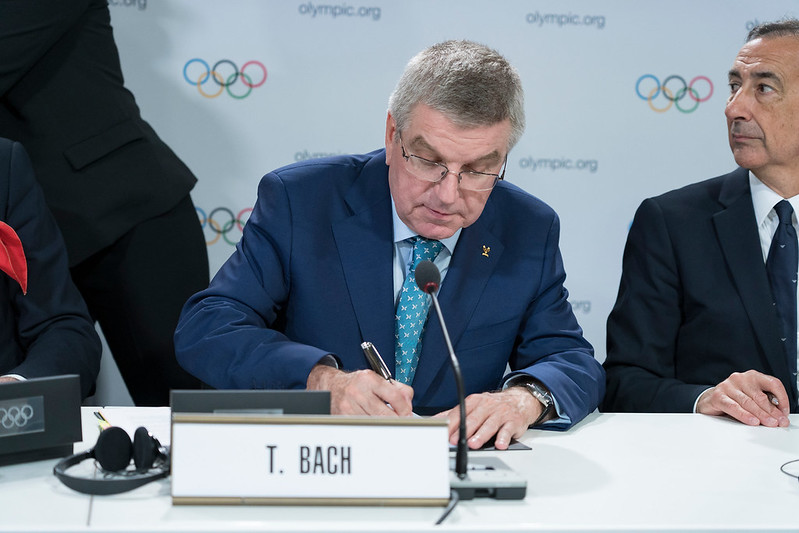
Shortly after the decision, IOC President Thomas Bach weighed in.
“Gathering a little bit of the atmosphere when we were leaving the room, my assumption is that what was key, what finally made the difference, was the gap in the public support,” he said.
“The 83 percent, the 55 percent – this was for many members a clear signal and you know public support often goes hand-in-hand with political support and this was maybe also the reason why the City of Stockholm was not ready to sign the host city contract.”
Bach, right in line with his “too many losers” bid mantra, called out Stockholm Åre as a loser. They didn’t get the support numbers, Stockholm wouldn’t sign the contract. Even though it was all okay before. They lost. It was their fault.
I can see why the Swedes could feel deceived, even cheated.
I feel that way myself, buying into the assurances that the support numbers and host city contract issues, were non-issues. That private financing was okay. It was creative. It was “fully compliant with Agenda 2020.”
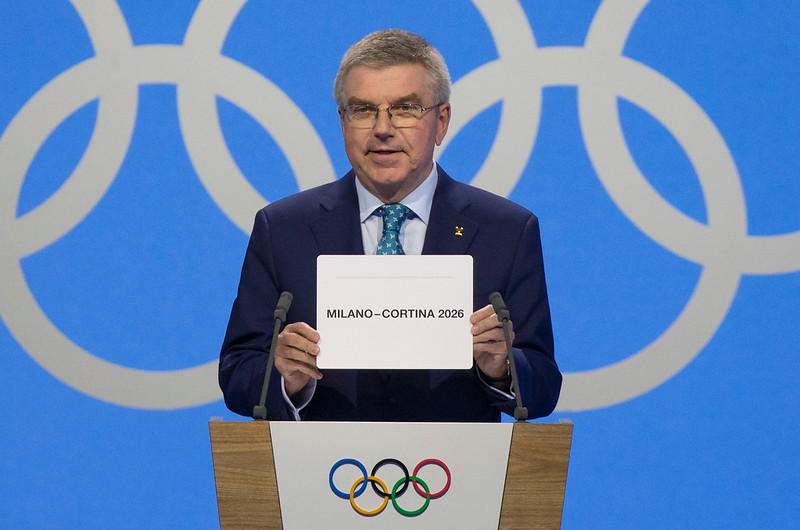
So on Tuesday, the bid called out the IOC, as diplomatically as possible.
The press release read:
“Our hope and expectation has been that the IOC would be ready to move from words to action and have confidence in Sweden’s ability to deliver the Olympic and Paralympic Winter Games based on our proposal and vision.
We neither want, nor can present, a concept that involves major government grants and guarantees – or change the legislation – for a sports competition.
For now, we will return home to Sweden and reflect on this result – whilst taking the positive collaborative forces with us to other future sports initiatives.
We will come back in due time to the issue of future bids.”
No Winter Games in Sweden? Ever? I hope not.
Bids lose, but Sweden didn’t.
Brisius told me after the vote that there were benefits to the bid, win or lose. Not only did it bring Swedes together but, he said it won “with the legacy projects around bringing more youth into sports, the venues that are planned and the sustainability in sport.”
It was Bach that made Stockholm Åre out as a loser. It was the unfair, dishonest messaging that betrayed the trust. It’s the kind of thing that makes other cities think twice about bidding for the Games.
It makes you feel cheated.
On Wednesday the IOC is likely to approve further changes to the bid process that will use a more targeted approach to better vet candidates, and reduce the number of cities on the ballot, or perhaps eliminate the ballot completely.
There may be no more defeated bids for Bach to name losers.

